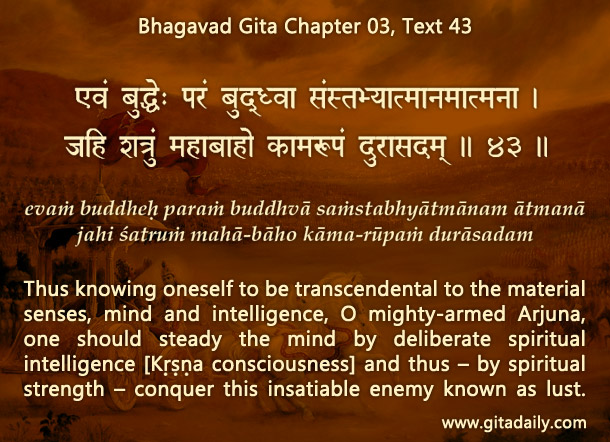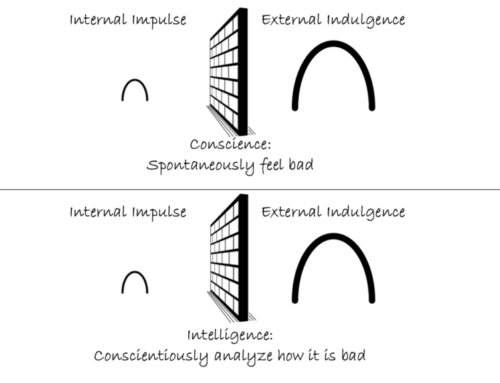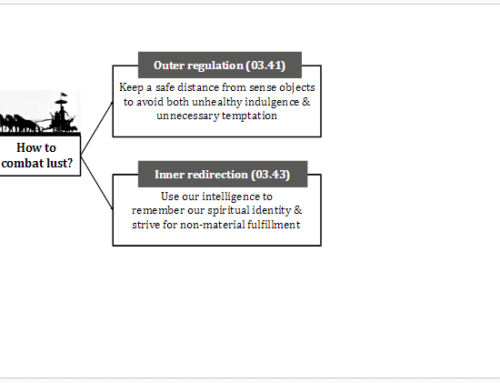Often when we are unable to resist our lower desires, we may blame ourselves for not being adequately detached.
While this may be true, we also need to recognize that detachment is not a virtue developed in isolation from our perceptions and emotions. As long as we think and feel that worldly pleasures are enjoyable, we cannot stay away from those pleasures for long. To change our external actions, we need to change our internal perceptions and emotions. That means, we need to reason and realize that worldly pleasures are not all that they are hyped to be, that spiritual devotion offers us a far more fulfilling way of satisfying our longing for happiness.
The philosophical reasoning and devotional realization that comprise the foundation of detachment can be called as discrimination or discernment, given the negative connotations associated with the word discrimination, as in racial discrimination. The Bhagavad-gita (03.36-43) analyzes how the lower desire of lust bewilders us and how we can battle it. After describing the modus operandi of lust, this section concludes with the call that we use our philosophical intelligence or discernment for conquering lust.
It is only by discernment that we can think, feel and accept that there exists higher happiness than that promised by lust, that detaching ourselves from lusty pleasures so as to attach ourselves to higher devotional pleasures is not deprivation, but is the path to real satisfaction.
Rather than using brute force or berating ourselves for lack of willpower necessary for detachment, we can strive to ensure that the edifice of detachment has a solid foundation in discernment. Instead of feeling frustrated that the edifice of our detachment crumbles repeatedly amidst the storm of temptation, we can intelligently strive to enhance our discernment by endeavoring to study Gita wisdom seriously and engage in purificatory devotional practices diligently.

Explanation of article:



Leave A Comment